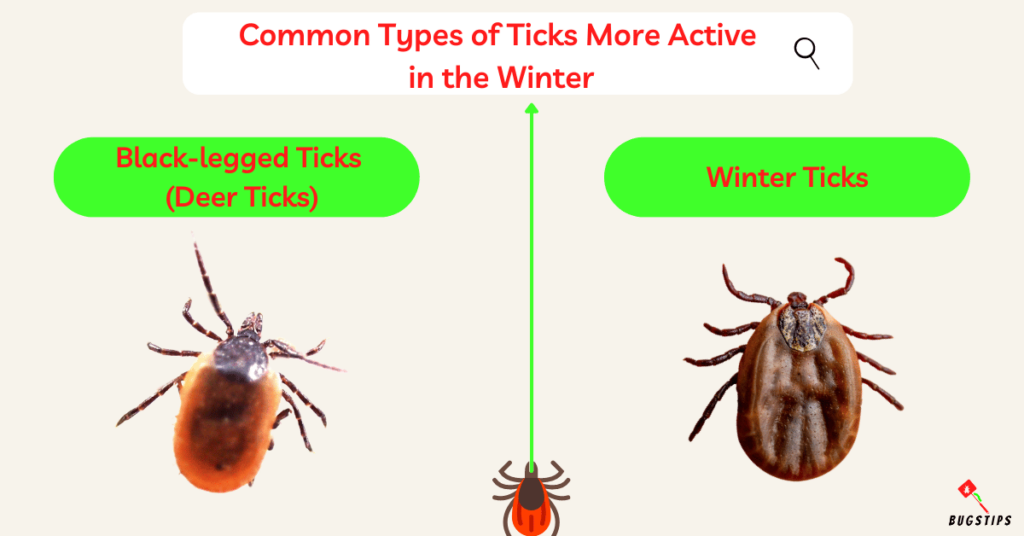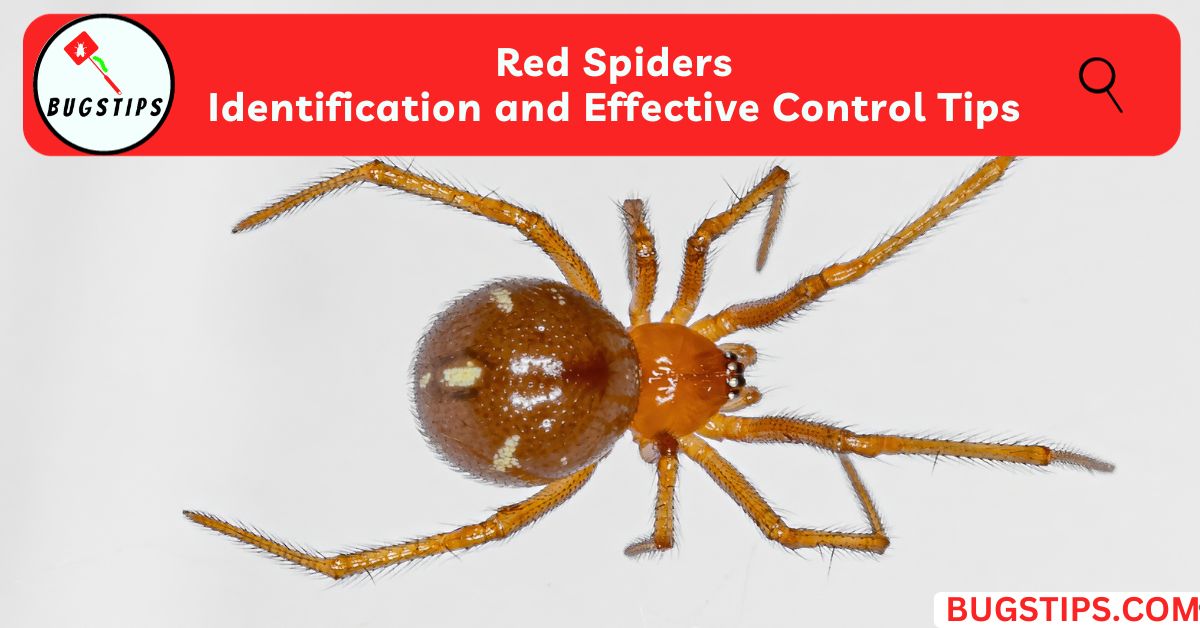This post may contain affiliate links which means as an Amazon Associate, this site may earn a small commission on qualified purchases made through links at no extra cost to you. Learn more on Affiliate Disclosure
Ticks are a real pain (literally and figuratively) for anyone who loves to spend time outdoors.
Whether you’re hiking, camping, or just taking a walk in the park, these tiny creatures can latch onto you or your furry friends and potentially transmit dangerous diseases.
As winter approaches, you might be wondering if you can finally breathe a sigh of relief and say goodbye to tick season.
Do ticks die in the winter, or do they stick around and continue to be a nuisance? I
n this article, we’ll get to the bottom of this question and explore everything you need to know about ticks in the winter.
So grab a warm drink and let’s dive in!
Do Ticks Die in the Winter?

Contrary to popular belief, ticks do not die off in the winter.
While they may be less active during colder months, they are still able to survive.
Ticks are hardy creatures that can tolerate a range of temperatures, including freezing temperatures.
Some species of ticks are even more active during the winter months.
So, if you thought you could take a break from worrying about ticks during the winter, unfortunately, that’s not the case.
You May Also Like – Bugs in Mailbox: 10 EASY Ways to Keep Them Out
How Do Ticks Survive in Winter?
Ticks have evolved several strategies to survive the cold winter months.
Here are some of the ways ticks can survive.

Hardshell
- Ticks have a hard, thick outer layer called a cuticle that helps them retain moisture and prevents them from drying out in the winter.
- This cuticle also provides some insulation against the cold.
- However, some species of ticks are more susceptible to cold temperatures than others, so the thickness of the cuticle can vary among species.
Related Article – 22 Bugs with Hard Shells | Top Tips to Eliminate
Reduced Metabolism
- Ticks are cold-blooded, meaning their body temperature is the same as their environment.
- In the winter, their metabolism slows down, allowing them to conserve energy and survive on less food.
- Some ticks will even enter a state of diapause, which is a period of suspended development and metabolic activity, to further conserve energy.
Using a Host
- Some ticks will attach to a host animal, such as a deer or rodent, during the winter to stay warm and obtain a blood meal.
- This can help them survive the winter months and be ready to lay eggs in the spring.
Seeking Shelter
- During the winter, they might seek shelter under leaf litter or in crevices to shield themselves from freezing temperatures and harsh winds.
- When the temperatures drop, ticks can burrow deeper into the ground or soil.
- By doing so, they find more stable and warmer conditions beneath the surface, which helps them endure the winter cold.
Related Article – 7 Little Black Bugs on Dogs Not Fleas!
Common Types of Ticks More Active in the Winter
During the winter months, two common types of ticks tend to be more active.

Black-legged Ticks (Deer Ticks)
- Black-legged ticks, also known as deer ticks (Ixodes scapularis), are among the tick species that remain active during the winter.
- These ticks are known for transmitting various diseases, including Lyme disease, anaplasmosis, and babesiosis.
- Despite the cold weather, black-legged ticks continue their quest for a blood meal by latching onto hosts like deer, mice, and even humans.
Winter Ticks
- As their name suggests, winter ticks (Dermacentor albipictus) are specifically adapted to thrive during the colder months.
- These ticks are a particular menace to wildlife, especially deer.
- Winter ticks infest deer herds, and heavy infestations can cause significant health issues for the animals.
- They latch onto the host for an extended period and feed throughout the winter, making them more active and troublesome during this season.
While other tick species might become less active or go into a dormant state during winter, these two types, black-legged ticks, and winter ticks continue their activities, posing potential risks to both animals and humans.
You May Also Like – Do Thrips Bite? Truth about Thrips’ Biting Habits
How Do Ticks Die Naturally
Ticks can naturally die due to a range of factors, and these factors can be particularly relevant during the winter.
Here are some ways ticks may die.

Lack of Food
- During the winter, host animals such as deer or rodents may be less active or less available, which can make it harder for ticks to find a blood meal.
- If ticks are unable to find a host and feed, they may die from starvation.
Environmental Factors
- Harsh environmental conditions, such as extreme heat, prolonged drought, or cold winters, can take a toll on tick populations.
- Ticks are sensitive to changes in weather and humidity levels.
- For instance, during hot and dry spells, ticks might struggle to find suitable environments to survive, leading to a decline in their numbers.
Related Article – 13 Bugs That Look Like Black Sesame Seeds
Predators
- Ticks have numerous natural predators in the wild.
- Birds, spiders, certain insects, and even some small mammals feed on ticks as part of their diet.
- These predators help keep tick populations in check by consuming them when they come across tiny arachnids.
Old Age
- Like all living organisms, ticks have a natural lifespan.
- As they age, they may become weaker and more susceptible to environmental factors, making them more likely to die naturally.
When Do Ticks Become Active Again After Winter?
Ticks become active again after winter when the temperatures start to rise above freezing.
As the weather becomes milder, typically in the spring, ticks emerge from their winter hiding places, such as leaf litter or soil, where they have sought shelter to survive the cold.
The exact timing of tick activity resurgence can vary depending on the region and local climate conditions.
In some areas, ticks may become active as early as late winter, while in colder regions, it may take a bit longer for them to re-emerge.
Once the temperatures are conducive to their activity, ticks begin their quest for a blood meal.
They climb up vegetation and extend their forelegs, ready to attach themselves to any warm-blooded host that passes by.
Related Article – 8 Bugs That Look Like Lint and Bite
Can You Kill Ticks By Freezing
Yes, freezing ticks can be an effective method for killing them. Ticks are sensitive to extreme temperatures, and exposing them to subzero temperatures can lead to their death.
If you happen to find a tick on your clothing or belongings and want to dispose of it, you can kill the tick by placing it in a sealed bag and putting it in the freezer for a few hours.
The cold temperature will immobilize and eventually kill the tick.
However, it’s important to note that freezing ticks off the skin directly is not recommended.
When a tick is attached to the skin, attempting to freeze it may cause the tick to regurgitate its stomach contents into the host’s bloodstream, increasing the risk of disease transmission.
Proper tick removal using fine-tipped tweezers is the safest method when dealing with ticks attached to the skin.
You May Also Like – 12 Tiny Black Bugs on Window Sill | Quick Fixes
How To Protect Yourself From Ticks During the Winter
Protecting yourself from ticks during the winter is essential to prevent potential tick bites and the transmission of tick-borne diseases.
Here are some effective tips to stay tick-free during the colder months.

Wear Protective Clothing
- When venturing outdoors, especially in areas where ticks are prevalent, dress in light-colored, long-sleeved shirts and pants.
- Tucking your pants into your socks can create a barrier, making it harder for ticks to crawl up your legs.
Use Tick Repellents
- Apply an EPA-approved tick repellent to exposed skin and clothing.
- Look for repellents containing ingredients like DEET, picaridin, or oil of lemon eucalyptus.
Stay on Trails
- Stick to well-maintained trails and avoid walking through tall grass or brush where ticks are more likely to be found.
- Stay away from areas with leaf litter, as ticks often hide in these environments.
Shower After Outdoor Activities
- After spending time outdoors, it’s important to shower as soon as possible to wash off any ticks on your skin.
- Use a washcloth or loofah to thoroughly scrub your skin, paying close attention to areas such as the scalp, behind the ears, under the arms, and around the waistband.
Related Article – Can Horse Flies Kill You? Things You Didn’t Know
Final Thoughts
So, do ticks die in the winter? Well, they don’t die off completely, but they do become less active and sort of take a nap known as diapause.
That being said, it’s still important to take preventative measures year-round to protect yourself and your furry friends from tick bites and tick-borne diseases.
Wearing protective clothing, using tick repellent, and checking for ticks regularly are all great ways to reduce your risk of tick bites.
And if you do find a tick, don’t panic! Just use some fine-tipped tweezers to remove it carefully and wash the bite area with soap and water or an antiseptic.
By being mindful of tick prevention, you can enjoy the great outdoors without worrying about these pesky critters.
So go ahead and plan that winter hike or outdoor adventure – just don’t forget to take some precautions before you head out!
FAQs
Can ticks survive freezing temperatures?
Yes, some ticks can survive freezing temperatures by entering a state of dormancy and producing anti-freeze proteins to protect their cells.
Do ticks die instantly in cold weather?
No, ticks do not die instantly in cold weather. Instead, they use various survival strategies, such as seeking shelter and reducing their metabolism, to endure the cold.
Are ticks less active on cold winter days?
Yes, ticks are generally less active on cold winter days, but some species may still be active, especially if the temperatures are not extremely low.
Where do ticks go in the winter?
Ticks seek shelter in protected areas during the winter, such as under leaf litter, in soil crevices, or even on hosts like animals.
Do deer ticks die in the winter?
Some deer ticks, also known as black-legged ticks, remain active in the winter, while others might become less active or go dormant depending on the local climate.
Can you kill ticks in the freezer?
Yes, you can kill ticks in the freezer by placing them in a sealed bag and leaving them frozen for a few hours.
Resources – (for further reading)
Pennsylvania Tick Research Lab – Surviving Winter – Lyme & Tick-Borne Disease
ticktalkcanada.com – Seasonality of Ticks – Tick Talk Canada



